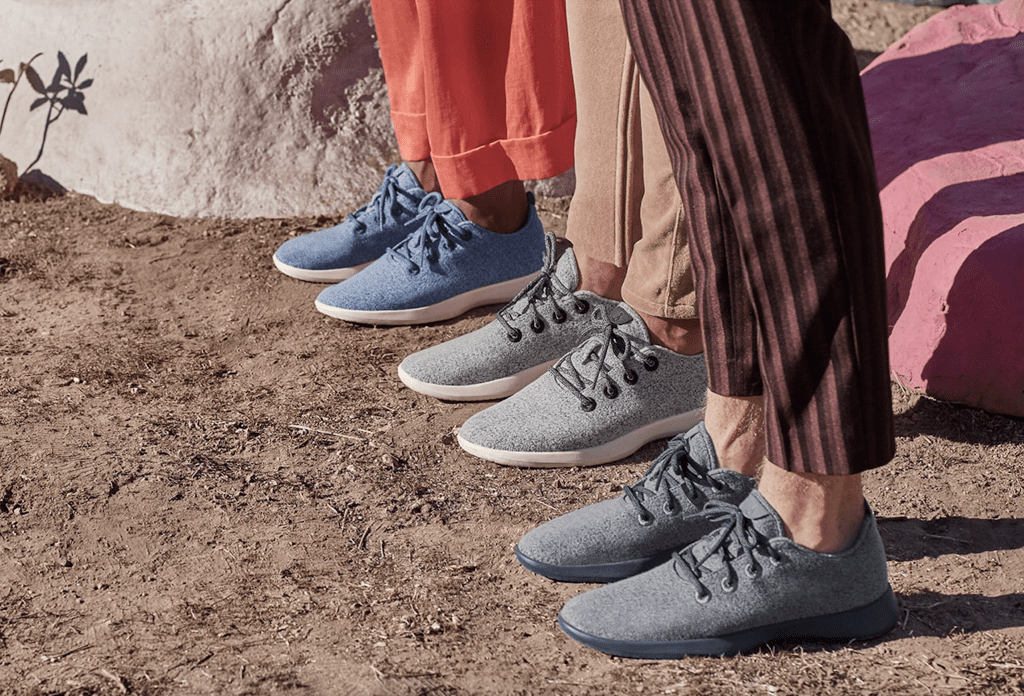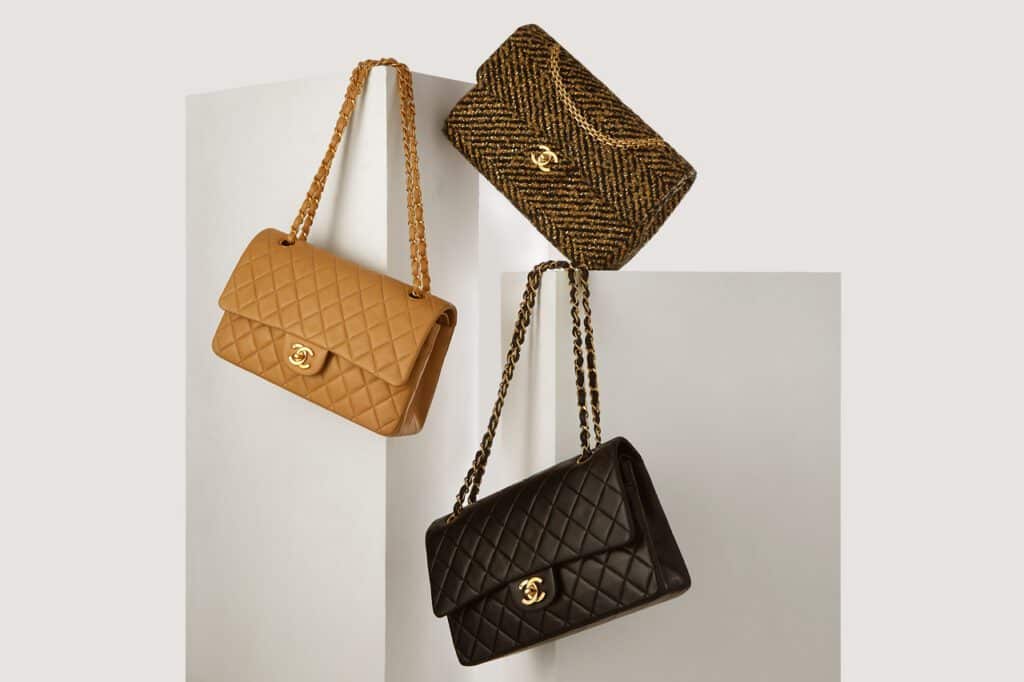Allbirds has escaped a false advertising lawsuit accusing it of failing to live up to the claims that it makes in its sustainability-centric marketing, including ones about the carbon footprint of its popular footwear, and its “sustainable” and “responsible” manufacturing practices. In an opinion and order dated April 18, Judge Cathy Seibel of the U.S. District Court for the Southern District of New York granted Allbirds’ motion to dismiss, tossing out the lawsuit that plaintiff Patricia Dwyer filed against it in the summer of 2021, in which she alleged that despite Allbirds’ advertising being “replete with eco-friendly phrases,” the reality of its operations does not match that “eco-friendly”-focused marketing, and the footwear brand has peddled “false, deceptive and misleading” information.
Specifically, Dwyer alleged in her June 2021 complaint that in furtherance of its offering up its wool-based footwear, Allbirds makes “representations such as: ‘Sustainability Meets Style,’ ‘Low Carbon Footprint,’ ‘Environmentally Friendly,’ ‘Made with Sustainable Wool,’ ‘Reversing Climate Change…’ and ‘Our Sustainable Practices,’” which Dwyer claimed are misleading. Among other things, she took issue with Allbirds’ use of the Higg Material Sustainability Index (“MSI”) to measure the environmental impact of apparel materials, arguing that the Higg MSI “only [addresses] raw materials and lacks standards for comparing different materials,” among other things.
Additionally, Dwyer asserted that Allbirds’ life cycle assessment (“LCA”) tool – which it uses to identify the carbon footprint of each of its products – does not assess the environmental impact beyond the manufacturing of the shoes, themselves, such as the impact of “wool production, including on water, eutrophication, or land occupation,” and thus, “exclude[s] almost half of wool’s environmental impact.” As such, she argued that the carbon footprint figures that Allbirds advertises “are based on ‘the most conservative assumption for each calculation, [which] skew the calculations in [Allbirds’] own favor,’ so it can make more significant environmental claims.”
And still yet, Dwyer accused Allbirds, which went public on the Nasdaq in November 2021, of making “misleading animal welfare claims” by improperly “promot[ing] the ‘happy’ sheep” whose wool is at the heart of its products and claiming that its “wool harvesting practices are sustainable [and] humane.”
Not Misleading to a Reasonable Consumer
In her April 18 order, Judge Seibel sided with Allbirds across the board, first finding that Dwyer failed to plausibly allege that the statements that Allbirds makes about the environmental impact of its products and animal welfare are materially misleading. This means that she fell short of making her deceptive business practices and false advertising claims under New York General Business Law. “To state a claim under either section [of the New York General Business Law], a plaintiff must show ‘first, that the challenged act or practice was consumer-oriented; second, that it was misleading in a material way; and third, that the plaintiff suffered injury as a result of the deceptive act,’” the Judge stated.
First examining Allbirds’ environmental impact claims, and namely, Dwyer’s pushback against its use of the LCA tool and the Higg MSI as the basis for such claims, Judge Seibel determined that Dwyer’s “criticism [is] of the tool’s methodology,” not with Allbirds’ statements about its products. Specifically, the court states that Dwyer does not allege that the calculations that Allbirds provides in connection with its carbon footprint are wrong, or that Allbirds “falsely describes the way it undertakes those calculations.” Dwyer also does not “allege that a reasonable consumer would expect [Allbirds] to use another method of calculation or would be misled by [its] use of the LCA tool or the Higg MSI,” according to the court.
In fact, “in advertising [its] product’s carbon footprint calculations, Allbirds describes the exact components of the calculation, and [Dwyer] provides no facts suggesting that [it] is not calculating the carbon footprint as advertised,” the court states, noting that Allbirds “does not mislead the reasonable consumer because it makes clear what is included in the carbon footprint calculation, and does not suggest that any factors are included that really are not.”
While the court states that “there may well be room for improvement in the Higg MSI,” that does not mean that Allbirds’ reliance on that “current standard” is deceptive.

Turning to Allbirds’ animal welfare claims, namely, its marketing that depicts “happy” sheep in “pastoral settings,” which Dwyer claims are based on “empty welfare policies that do little to stop animal suffering,” the court, again sides with Allbirds on the basis that Dwyer fails to identify “any misstatement in any advertisement that would deceive consumers.”
Dwyer points to two advertisements that show sheep in a field, one of which says, “What if every time you got a haircut they made shoes out of it? That would be pretty cool,” and the other of which says, “Behind every shoe is a sheep. And behind every sheep, is another sheep, probably.” However, according to the court, “These ads, which are obviously intended to be humorous, make no representations at all,” and thus, are not actionable.
As for Allbirds’ claim that its wool harvesting practices are “sustainable, humane and that it intends to eventually source ‘only wool from ‘regenerative’ sources,” the court states that the underlying evidence that Dwyer relies on (i.e., a PETA publication that found cruelty to sheep at over 100 large-scale operations) “does not describe any animal cruelty specific to Allbirds or its products.” Beyond that, Judge Seibel stated that Dwyer’s “allegations that the [wool] industry as a whole deceives consumers do not satisfy her burden to allege that a specific advertisement or statement by Allbirds would mislead a reasonable consumer as to [its] product.”
And finally, the court shot down Dwyer’s claim that Allbirds’ statement “Our Sheep Live The Good Life” is misleading and deceptive, finding that “this statement, and the depictions of ‘happy’ sheep in ‘pastoral settings,’ are classic puffery, which is not actionable under §349,” which prohibits “deceptive acts or practices in the conduct of any business, trade or commerce or in the furnishing of any service in [New York] state.”
Specifically, the Judge determines that “‘The Good Life’ is a subjective, non-specific, unmeasurable, and vague statement” that “does not specify any fact about the sheep from which [Allbirds] gets its wool, let alone suggest, as [Dwyer] alleges, that the sheep receive individual care or do not undergo [an inhumane] procedure.”
Because Allbirds’ “statements, advertisements, and practices relating to [its] products are not materially misleading,” the Judge dismissed Dwyer’s New York General Business Law claims. She similarly dismisses Dwyer’s claims for breach of express warranty, fraud, and unjust enrichment, stating they are “all premised on the assertion that Allbirds’ environmental impact and animal welfare claims are materially misleading” and noting that she “already determined that [Dwyer] fails to allege that the statements, advertising, and practices relating to the [Allbirds products] would be likely to deceive or mislead a reasonable consumer.”
While this loss for Dwyer in her lawsuit against Allbirds may serve to dissuade other potential plaintiffs from taking action over sustainability-centric advertising claims, it is worth noting that a number of other cases that center on sustainability marketing, including cases filed against Reynolds Consumer Products and Red Lobster, are still underway in federal courts in the U.S., and may result in different outcomes for the parties and potentially, for how courts look at sustainability marketing more generally.
The case is Patricia Dwyer v. Allbirds, Inc., 7:21-cv-05238 (SDNY).











